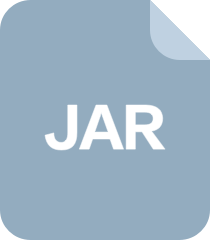apache-doris-0.12.0-incubating-src.tar.gz-java8 编译版

Apache Doris,全称为Apache Doris(Incubating),是一个高性能、实时的分析型数据库,设计用于在线分析处理(OLAP)场景。Doris 的 0.12.0 版本是其在 Apache 孵化器中的一个里程碑,提供了许多优化和改进,以提升查询性能和稳定性。 在“apache-doris-0.12.0-incubating-src.tar.gz-java8 编译版”中,重点是源代码和针对 Java 8 的编译版本。这意味着该压缩包包含 Apache Doris 的源代码,用户可以对其进行深度定制和二次开发,同时它已经过 Java 8 兼容性测试,确保在 Java 8 环境下能够顺利运行。Java 8 是 Oracle 推出的一个重要版本,引入了 lambda 表达式、流(Stream)API 和方法引用等新特性,对于开发人员来说更加高效且易于理解。 在构建和编译 Apache Doris 时,通常需要遵循以下步骤: 1. **环境准备**:确保系统已安装了 Java 8 开发工具包(JDK 8),以及 Git 用于克隆源代码仓库。 2. **源码获取**:使用 Git 克隆 Apache Doris 的 0.12.0 版本源码库,命令可能为 `git clone -b rel/v0.12.0 https://github.com/apache/incubator-doris.git`。 3. **编译环境配置**:根据 Doris 的官方文档,配置编译所需的依赖,例如 Maven、Protobuf、Gflags、Glog、jemalloc 等。 4. **执行编译**:使用 Maven 进行编译,命令可能是 `mvn clean package -Pbuild-native`。这个过程会生成可执行文件和库文件。 5. **安装部署**:将编译好的二进制文件部署到服务器,并按照官方文档的指导进行配置。 6. **测试验证**:启动 Doris 的 BE(Backend)和 FE(Frontend)节点,确保服务正常运行,然后通过 SQL 查询验证其功能。 在 0.12.0 版本中,Apache Doris 可能包含以下关键改进: - **性能优化**:可能包括查询速度的提升,内存管理的改进,以及对大规模数据的处理能力增强。 - **新特性**:可能增加了新的 SQL 功能,如更丰富的聚合函数,或者对 JSON 数据的支持。 - **稳定性增强**:可能修复了已知的 bugs,提高了系统的可用性和可靠性。 - **扩展性**:可能优化了分布式部署和扩展的能力,支持更多的节点和更大的集群规模。 - **兼容性**:与 Java 8 的兼容性意味着它可以在广泛使用的 Java 环境中稳定运行。 在实际使用中,用户可以根据“java8编译好的doris”这个文件名推测,这个压缩包可能包含了已经编译完成的二进制文件,可以直接用于部署,省去了自行编译的步骤。用户只需解压后,按照官方文档的指南进行配置和启动即可开始使用 Doris。 Apache Doris 0.12.0 版本的 Java 8 编译版提供了一个强大的分析型数据库解决方案,尤其适合需要高效 OLAP 能力的业务场景。无论是对于开发者还是运维人员,了解其源码结构、编译流程以及新版本的特点都是至关重要的。
 apache-doris-0.12.0-incubating-src.tar.gz-java8 编译版 (121个子文件)
apache-doris-0.12.0-incubating-src.tar.gz-java8 编译版 (121个子文件)  libDorisUdf.a 1.24MB
libDorisUdf.a 1.24MB fe.conf 3KB
fe.conf 3KB be.conf 2KB
be.conf 2KB bootstrap.css 143KB
bootstrap.css 143KB datatables_bootstrap.css 5KB
datatables_bootstrap.css 5KB udf.h 27KB
udf.h 27KB uda_test_harness.h 11KB
uda_test_harness.h 11KB palo-fe.jar 9.92MB
palo-fe.jar 9.92MB jprotobuf-2.2.11-jar-with-dependencies.jar 5.84MB
jprotobuf-2.2.11-jar-with-dependencies.jar 5.84MB kubernetes-model-1.0.64.jar 5MB
kubernetes-model-1.0.64.jar 5MB netty-all-4.1.42.Final.jar 3.89MB
netty-all-4.1.42.Final.jar 3.89MB je-7.3.7.jar 3.04MB
je-7.3.7.jar 3.04MB jna-platform-5.4.0.jar 2.5MB
jna-platform-5.4.0.jar 2.5MB guava-15.0.jar 2.07MB
guava-15.0.jar 2.07MB snappy-java-1.1.7.2.jar 1.93MB
snappy-java-1.1.7.2.jar 1.93MB log4j-core-2.12.1.jar 1.6MB
log4j-core-2.12.1.jar 1.6MB jna-5.4.0.jar 1.44MB
jna-5.4.0.jar 1.44MB protobuf-java-3.5.1.jar 1.35MB
protobuf-java-3.5.1.jar 1.35MB jackson-databind-2.9.7.jar 1.29MB
jackson-databind-2.9.7.jar 1.29MB mysql-connector-java-5.1.41.jar 970KB
mysql-connector-java-5.1.41.jar 970KB spring-core-3.2.11.RELEASE.jar 864KB
spring-core-3.2.11.RELEASE.jar 864KB spring-context-3.2.11.RELEASE.jar 846KB
spring-context-3.2.11.RELEASE.jar 846KB kafka-clients-0.10.1.1.jar 779KB
kafka-clients-0.10.1.1.jar 779KB jackson-mapper-asl-1.9.13.jar 762KB
jackson-mapper-asl-1.9.13.jar 762KB httpclient-4.4.1.jar 704KB
httpclient-4.4.1.jar 704KB javassist-3.18.2-GA.jar 698KB
javassist-3.18.2-GA.jar 698KB jmockit-1.48.jar 693KB
jmockit-1.48.jar 693KB javassist-3.12.1.GA.jar 629KB
javassist-3.12.1.GA.jar 629KB joda-time-2.10.1.jar 626KB
joda-time-2.10.1.jar 626KB spring-web-3.2.11.RELEASE.jar 617KB
spring-web-3.2.11.RELEASE.jar 617KB spring-beans-3.2.11.RELEASE.jar 599KB
spring-beans-3.2.11.RELEASE.jar 599KB xnio-api-3.6.5.Final.jar 569KB
xnio-api-3.6.5.Final.jar 569KB commons-collections-3.2.1.jar 562KB
commons-collections-3.2.1.jar 562KB jetty-6.1.14.jar 504KB
jetty-6.1.14.jar 504KB commons-lang3-3.9.jar 492KB
commons-lang3-3.9.jar 492KB log4j-1.2.17.jar 478KB
log4j-1.2.17.jar 478KB velocity-1.7.jar 439KB
velocity-1.7.jar 439KB oshi-core-4.0.0.jar 412KB
oshi-core-4.0.0.jar 412KB okhttp-3.4.1.jar 336KB
okhttp-3.4.1.jar 336KB spring-aop-3.2.11.RELEASE.jar 330KB
spring-aop-3.2.11.RELEASE.jar 330KB RoaringBitmap-0.8.13.jar 321KB
RoaringBitmap-0.8.13.jar 321KB jackson-core-2.9.7.jar 316KB
jackson-core-2.9.7.jar 316KB httpcore-4.4.1.jar 315KB
httpcore-4.4.1.jar 315KB junit-4.12.jar 308KB
junit-4.12.jar 308KB kubernetes-client-1.4.27.jar 292KB
kubernetes-client-1.4.27.jar 292KB cglib-2.2.jar 272KB
cglib-2.2.jar 272KB log4j-api-2.12.1.jar 270KB
log4j-api-2.12.1.jar 270KB snakeyaml-1.15.jar 263KB
snakeyaml-1.15.jar 263KB commons-codec-1.9.jar 258KB
commons-codec-1.9.jar 258KB commons-lang-2.4.jar 256KB
commons-lang-2.4.jar 256KB gson-2.8.6.jar 235KB
gson-2.8.6.jar 235KB lz4-1.3.0.jar 231KB
lz4-1.3.0.jar 231KB libthrift-0.9.3.jar 229KB
libthrift-0.9.3.jar 229KB jackson-core-asl-1.9.13.jar 227KB
jackson-core-asl-1.9.13.jar 227KB commons-beanutils-1.8.3.jar 227KB
commons-beanutils-1.8.3.jar 227KB wildfly-common-1.3.0.Final.jar 217KB
wildfly-common-1.3.0.Final.jar 217KB commons-io-2.6.jar 210KB
commons-io-2.6.jar 210KB spring-expression-3.2.11.RELEASE.jar 192KB
spring-expression-3.2.11.RELEASE.jar 192KB commons-validator-1.4.1.jar 186KB
commons-validator-1.4.1.jar 186KB jprotobuf-rpc-core-3.5.21.jar 176KB
jprotobuf-rpc-core-3.5.21.jar 176KB jflex-1.4.3.jar 175KB
jflex-1.4.3.jar 175KB automaton-1.11-8.jar 172KB
automaton-1.11-8.jar 172KB jboss-threads-2.3.0.Beta2.jar 163KB
jboss-threads-2.3.0.Beta2.jar 163KB jprotobuf-1.11.9.jar 160KB
jprotobuf-1.11.9.jar 160KB jetty-util-6.1.14.jar 159KB
jetty-util-6.1.14.jar 159KB commons-digester-1.8.1.jar 143KB
commons-digester-1.8.1.jar 143KB servlet-api-2.5-6.1.14.jar 129KB
servlet-api-2.5-6.1.14.jar 129KB auto-value-1.0-rc2.jar 124KB
auto-value-1.0-rc2.jar 124KB jaxb-api-2.3.0.jar 123KB
jaxb-api-2.3.0.jar 123KB xnio-nio-3.6.5.Final.jar 118KB
xnio-nio-3.6.5.Final.jar 118KB commons-pool2-2.2.jar 106KB
commons-pool2-2.2.jar 106KB servlet-api-2.4.jar 95KB
servlet-api-2.4.jar 95KB metrics-core-4.0.2.jar 95KB
metrics-core-4.0.2.jar 95KB java-cup-0.11-a-czt02-cdh.jar 88KB
java-cup-0.11-a-czt02-cdh.jar 88KB javax.servlet-api-3.0.1.jar 83KB
javax.servlet-api-3.0.1.jar 83KB jprotobuf-protoparser-1.0.1.jar 82KB
jprotobuf-protoparser-1.0.1.jar 82KB javax.activation-1.2.0.jar 76KB
javax.activation-1.2.0.jar 76KB okio-1.9.0.jar 74KB
okio-1.9.0.jar 74KB jackson-annotations-2.9.7.jar 65KB
jackson-annotations-2.9.7.jar 65KB jboss-logging-3.3.1.Final.jar 64KB
jboss-logging-3.3.1.Final.jar 64KB validation-api-1.1.0.Final.jar 62KB
validation-api-1.1.0.Final.jar 62KB commons-logging-1.2.jar 60KB
commons-logging-1.2.jar 60KB json-20171018.jar 60KB
json-20171018.jar 60KB commons-cli-1.4.jar 53KB
commons-cli-1.4.jar 53KB jaxws-api-2.3.0.jar 51KB
jaxws-api-2.3.0.jar 51KB asm-4.1.jar 46KB
asm-4.1.jar 46KB wildfly-client-config-1.0.0.Final.jar 46KB
wildfly-client-config-1.0.0.Final.jar 46KB javax.xml.soap-api-1.4.0.jar 45KB
javax.xml.soap-api-1.4.0.jar 45KB hamcrest-core-1.3.jar 44KB
hamcrest-core-1.3.jar 44KB asm-3.1.jar 42KB
asm-3.1.jar 42KB objenesis-2.1.jar 41KB
objenesis-2.1.jar 41KB jackson-dataformat-yaml-2.9.7.jar 40KB
jackson-dataformat-yaml-2.9.7.jar 40KB auto-common-0.3.jar 38KB
auto-common-0.3.jar 38KB protoparser-3.1.5.jar 37KB
protoparser-3.1.5.jar 37KB zjsonpatch-0.2.3.jar 35KB
zjsonpatch-0.2.3.jar 35KB jackson-module-jaxb-annotations-2.9.7.jar 32KB
jackson-module-jaxb-annotations-2.9.7.jar 32KB javax.annotation-api-1.3.2.jar 26KB
javax.annotation-api-1.3.2.jar 26KB okhttp-ws-3.4.1.jar 25KB
okhttp-ws-3.4.1.jar 25KB slf4j-api-1.7.5.jar 25KB
slf4j-api-1.7.5.jar 25KB jprotobuf-rpc-core-test-3.5.21.jar 24KB
jprotobuf-rpc-core-test-3.5.21.jar 24KB- 1
- 2
- 粉丝: 1
- 资源: 2
 我的内容管理
展开
我的内容管理
展开
 我的资源
快来上传第一个资源
我的资源
快来上传第一个资源
 我的收益 登录查看自己的收益
我的收益 登录查看自己的收益 我的积分
登录查看自己的积分
我的积分
登录查看自己的积分
 我的C币
登录后查看C币余额
我的C币
登录后查看C币余额
 我的收藏
我的收藏  我的下载
我的下载  下载帮助
下载帮助

 前往需求广场,查看用户热搜
前往需求广场,查看用户热搜最新资源


 信息提交成功
信息提交成功
评论0